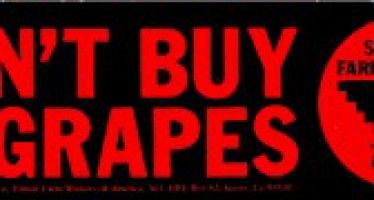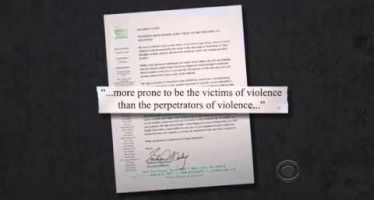Chicken protests show progress in culture wars
By John Hrabe
Whenever you’ve got trouble, and I mean trouble with a capital T, authoritarians’ first impulse is to ban it. And it doesn’t matter if that trouble is rap music, violent video games, or a pool hall in River City.
The Chick-fil-A protests and counter-protests are nothing new, just the latest chapter in America’s ongoing culture wars. Don’t like gay couples: ban gay marriage. Hate Chick-fil-A for opposing gay marriage: ban Chick-fil-A. Cultural warriors of all political stripes love to use the machinery of government to suppress their critics and push their agenda.
That’s what happened at first in the current chicken fight. The conservative authoritarians at Chick-fil-A gave money to organizations that support defense of marriage laws. Big government trying to ban two individuals from entering into a private contract. The liberal authoritarians responded with talk of blocking Chick-fil-A from opening new franchises in their communities. Big government trying to infringe on public commerce and free speech.
Ironically, both sides share the same philosophical foundation: “I don’t like you so I want government to shut you down.”
Public Shot Down Big City Mayors
Then, something different happened. After Boston’s Mayor Thomas Menino, Chicago’s Mayor Rahm Emanuel and San Francisco’s Mayor Edwin Lee made their unconstitutional threats, the mayors’ comments were immediately shot down by constitutional scholars and endorsed by the public. The debate shifted from government actions to private boycotts.
“Even when it comes to government contracting — where the government is choosing how to spend government money — the government generally may not discriminate based on the contractor’s speech, see Board of County Commissioners v. Umbehr (1996),” wrote the country’s preeminent First Amendment scholar, UCLA law school professor Eugene Volokh. “It is even clearer that the government may not make decisions about how people will be allowed to use their own property based on the speaker’s past speech.”
The American Civil Liberties Union, or the group conservatives love-to-hate, echoed Volokh’s position.
“The government can regulate discrimination in employment or against customers, but what the government cannot do is to punish someone for their words,” said ACLU attorney Adam Schwartz. “When an alderman refuses to allow a business to open because its owner has expressed a viewpoint the government disagrees with, the government is practicing viewpoint discrimination.”
Private Boycotts: Non-Government Solutions
The debate continued, but in a positive way, which was substantially different from past cultural battles. All of the public’s fury was channeled into private, non-government solutions. That’s something to celebrate. There wasn’t any more talk of banning Chick-fil-As. No lawmaker suggested a mandatory warning label for all Chick-fil-A products, or banning minors from your neighborhood Chick-fil-A restaurant.
The Traditional Values Coalition urged their members to support “citizen leaders willing to stand tall and support Christian values in the public square.” Gay rights groups, such as the NoH8 campaign, encouraged the public to boycott the chain. There was “National Same-Sex Kiss Day at Chick-fil-A” Day versus “Chick-fil-A Appreciation Day.” Both sides got to express their views and take action with their wallets.
Can liberals now understand why money equals a form of political speech?
American Tradition: Voting with Your Wallet
Boycotts date back to America’s founding. “If you choose where to eat based on a company’s political views, as well as how good the food is or how much it costs, that’s your call,” the Sacramento Bee editorialized. “Voting with your feet, or with your wallet, is an American tradition.” Remember, the Boston Tea Party, it had a corresponding boycott of British tea.
When individuals have the freedom to choose, or when government stays out of it, the debate gets better. You don’t get two polarized sides, but a wide-array of views. People who are gay but still eat at Chick-fil-A. Conservatives who support traditional marriage but patronize liberal-minded businesses.
“I am gay and I support Chick-fil-A,” Matt Perez, a 19-year-old from Redding self-reported on CNN’s i-Report. “Personally they have never treated me any different as a gay man and I will continue to do business with them so long as that holds true.”
On the other side, most conservatives aren’t likely to stop using their iPhone or Windows-based computer. “Microsoft and Apple, to name a couple, donate to pro-gay-marriage groups,” reminded best-selling author and radio talk-show host Larry Elder. “Should opponents of gay marriage find the companies’ stance on marriage so offensive that they, too, launch consumer boycotts?”
Private boycotts are harder to pull off. It’s much easier to have the government do it for you.
“While I understand the goal of voting with one’s pocketbook, I’ve personally found boycotts to be impossible to pull off with any consistency,” wrote conservative columnist and radio host Inga Barks at the Bakersfield Californian. “If I like a product, I buy it.”
Who will eventually win the Battle of Chick-fil-A? Believers in limited government already have.
Related Articles
Farm workers fight UFW unionization
The United Farm Workers labor union and the state Agricultural Labor Relations Board have found themselves on the brink of ruination
CA Legislature passes slew of ‘Gunmageddon’ bills
June 3, 2013 By Katy Grimes SACRAMENTO — Call it “Gunmageddon.” The many anti-gun bills moving through the legislature would
Southern CA ‘Bonfire of the vanities’
July 11, 2013 By Katy Grimes Whenever environmental or social justice activists want something banned, they create a health or





